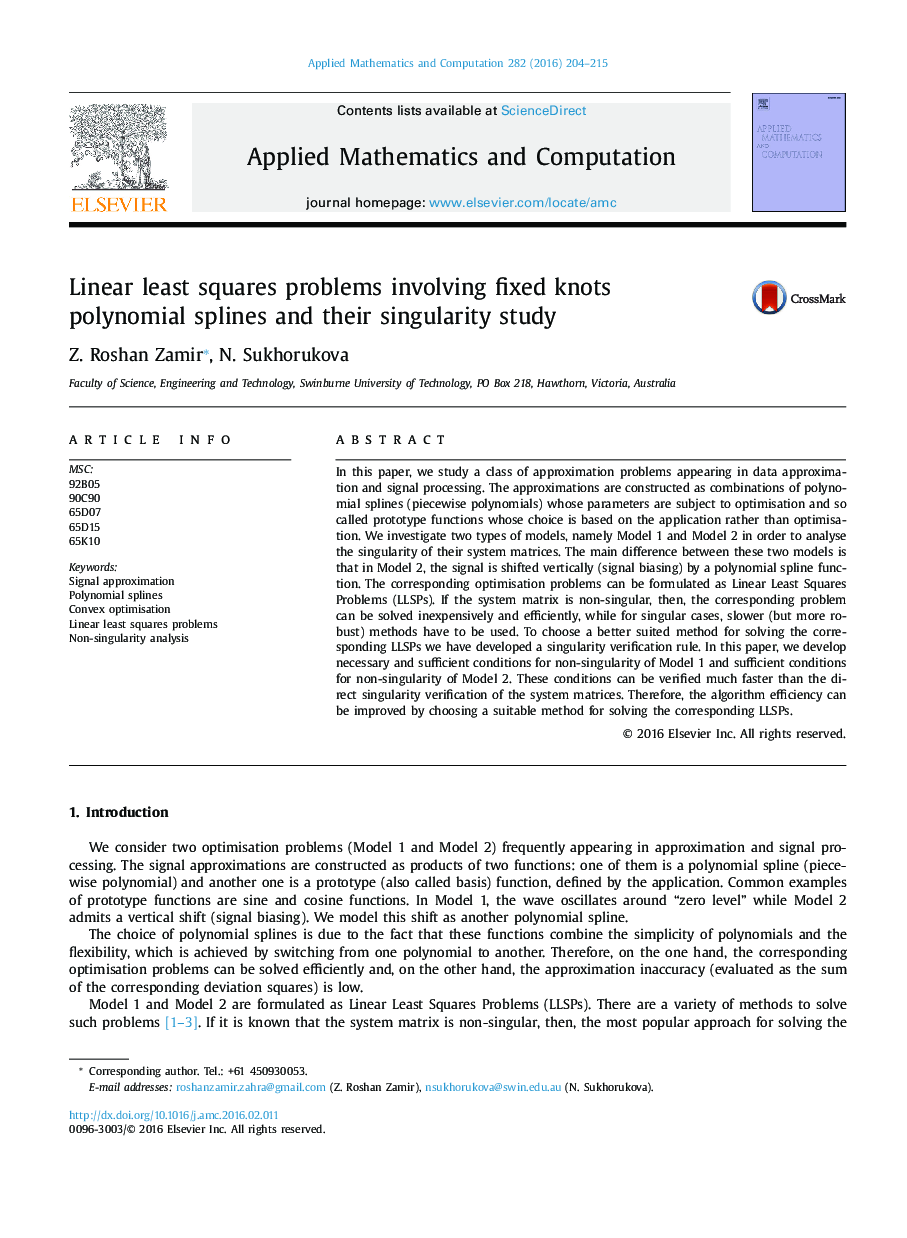| Article ID | Journal | Published Year | Pages | File Type |
|---|---|---|---|---|
| 4625893 | Applied Mathematics and Computation | 2016 | 12 Pages |
In this paper, we study a class of approximation problems appearing in data approximation and signal processing. The approximations are constructed as combinations of polynomial splines (piecewise polynomials) whose parameters are subject to optimisation and so called prototype functions whose choice is based on the application rather than optimisation. We investigate two types of models, namely Model 1 and Model 2 in order to analyse the singularity of their system matrices. The main difference between these two models is that in Model 2, the signal is shifted vertically (signal biasing) by a polynomial spline function. The corresponding optimisation problems can be formulated as Linear Least Squares Problems (LLSPs). If the system matrix is non-singular, then, the corresponding problem can be solved inexpensively and efficiently, while for singular cases, slower (but more robust) methods have to be used. To choose a better suited method for solving the corresponding LLSPs we have developed a singularity verification rule. In this paper, we develop necessary and sufficient conditions for non-singularity of Model 1 and sufficient conditions for non-singularity of Model 2. These conditions can be verified much faster than the direct singularity verification of the system matrices. Therefore, the algorithm efficiency can be improved by choosing a suitable method for solving the corresponding LLSPs.
